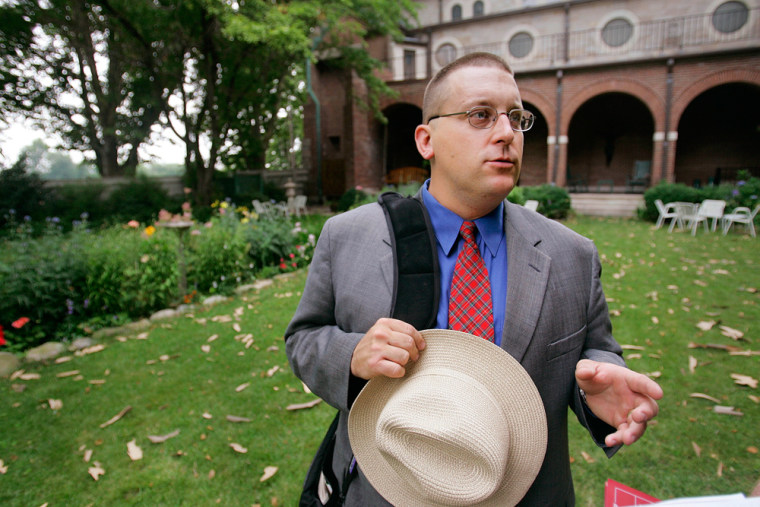National Guard Capt. Jeffrey Cox watched soldiers lose sight of God in the violence and daily grind of the war in Iraq.
He’s hoping they can find their faith again in an Episcopal monastery along the Charles River.
Prodded by Cox, the Society of Saint John the Evangelist is offering a “healing retreat” weekend in October to help soldiers returning from war adapt to life back home and reconnect with their faith.
The retreat aims to give soldiers space to reflect, worship and share their experiences.
“I’m not saying a weekend is going to solve any problems, but what it can do is it can give people a respite,” he said. “Not only are they able to talk about their heart and their mind, but they’re able to talk about their soul.”
Cox, who is studying to be an Episcopal priest, was a social worker for troops in Iraq and is now a contractor for the Army’s Wounded Warrior program, which assists severely injured or disabled soldiers. War can wear out faith, he observed.
War “seems like, at times, the absolute opposite of what our natural being is,” Cox said.
The retreat, which is not affiliated with the military, is open to anyone affected by war, and members of other faiths are welcome, Brother Roy Cockrum said. His hope is that those who attend find a place of rest where they know that God and others care about them.
“We want to make the space available, to see if what we have to offer is valuable,” he said. “We suspect it is, and we suspect there’s a great need for healing out there.”
‘How to address the soul’
The society was founded in England in 1870 and has 22 brothers today, including 18 living in Cambridge and at a retreat center in West Newbury. Among the Cambridge residents is Thomas Shaw, bishop of the Episcopal Diocese of Massachusetts.
Over the stone walls of the compound — which is modeled after an early Christian monastery — rowers slide along the Charles River. Inside, day lilies grow on a courtyard strewn with bark shed by towering sycamore trees. Its Spartan rooms offer little more than a bed and silence.
The monks dress in long, brown robes and take vows of celibacy, poverty and obedience. One of their chief ministries is hospitality, and Cox has experienced it firsthand. He went on retreat there after serving in Iraq for a year beginning in October 2005.
The stress of living in a war zone is about more than the violence, Cox said. Often, it’s the wait for your next mission, for the next phone call from family, for the day when you can go home. It can leave people feeling lost and spiritually adrift when they return, he said.
“Some places are unsure about how to address the soul,” he said. “What we’re going to do, is we’re going to use the wisdom of the monks and the wisdom of each other to address it straight on.”
‘Not about fixing anybody’
The monastery can fit about 16 people for the free retreat Oct. 4-7. A “healing service” will be open to the public on Oct. 6, and Cockrum says he will share the liturgy used there with the wider church.
Applicants will be chosen based on their explanation of why they want to come. The weekend’s agenda will be open-ended, with plenty of time to talk and worship. If a run along the Charles is more appealing, that’s fine, Cockrum said.
“It’s not about fixing anybody,” he said. “It’s about creating a space that’s apart from and separate from the business of their lives, where they have a chance to reflect and pray if they care to.”
Cockrum said he’ll know whether to plan a second weekend after he sees how the first one works. But he does hope their group’s efforts spark other religious communities to do more for people damaged by war.
“If we could actually spark other people to get involve with this, that would be great,” he said.
